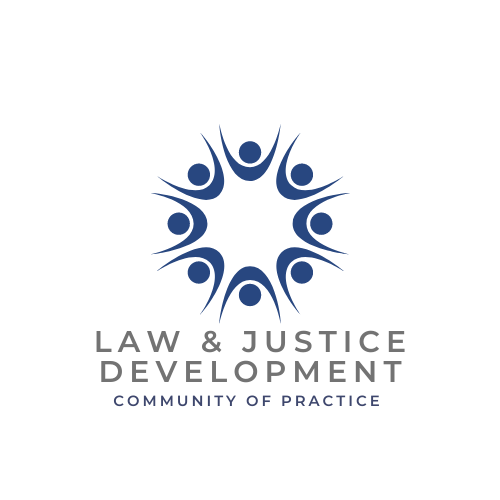Law & Justice Development Community of Practice End of Year Workshop
Friday 22 November 2019
The law, development and governance field is replete with good ideas that are intended to inform programming and ensure improved outcomes. Research, piloting, reviews, and monitoring and evaluation are all intended to advance and test such ideas within donor-funded programs. Too often, we find that these good ideas (and the normative concepts and research that underlies them) do not translate into good practice. Or they produce unintended consequences. Or the structures into which the ideas are released actively undermine them. In a similar way, we also find good practice that exists in particular sites and projects of law and justice interventions fails to surface to the the ‘animating ideas’ level, or to be translated in ways that might allow it to travel or be replicated elsewhere. The 2019 annual workshop for the Law and Justice Development Community of Practice explored this relationship between ideas and practice, examined how the structure and politics of our industry and the professional communities we occupy, produce this disjuncture. Discussions focussed on unpacking how ideas translate (or fail to translate) into practice and how practice is evolving – both locally and internationally – in ways that require our thinking to change. Click HERE for the programme.
Taking a people-centred approach to delivering on SDG 16.3: Report of the Task Force on Justice
20 June 2019
Sustainable Development Goal 16.3 promises to ensure equal access to justice for all by 2030. Without increased justice, the world will not be able to end poverty, reduce inequality, reach the furthest behind, create conditions for shared and sustainable development, or promote peace and inclusion.
Currently, 5.1 billion people – two-thirds of the world’s population – lack meaningful access to justice, with women, children, the poor, people with disabilities and minority ethnic groups disproportionately affected. In low-income countries, it would cost just $20 per person to provide access to basic justice services. Yet, two billion people live in countries that cannot afford even half that cost. At the same time, donor investment in justice has declined by 40 percent over the past four years and just 1.5 percent of official development assistance is spent on justice in fragile contexts.
It is clear that closing the justice gap requires a transformation in ambition, with both development and foreign policy communities engaged, alongside the private sector. It requires confronting political obstacles to change and moving beyond a focus on institutions that are distant from people and fail to serve their needs.
David Steven, Associate Director of the Center for International Cooperation at New York University and Head of the Secretariat of the Task Force on Justice – an initiative of the Pathfinders for Peaceful, Just and Inclusive Societies discussed the findings of the Task Force’s report on taking a different approach to delivering on SDG 16.3 by putting people at the centre of justice systems and justice at the heart of sustainable development. Click HERE to view the presentation.
Reflections and insights from the J4P Program
9 May 2019
Justice for the Poor (J4P) began more than ten years ago as an experimental program that aimed to address critical gaps in the theory and practice of promoting justice reform in developing countries. In particular, the program looked beyond technical forms of justice sector institutions to engage with the broader ‘rules of the game’ that shape how people in fact experience dispute resolution, claim their rights and pursue their interests. Recognizing that all development is ultimately about the distribution of rights, resources and responsibilities, and is inherently conflictual, the program focused on the role of law and norms in shaping the effectiveness and fairness of outcomes related to security and justice, development of land and natural resources, and service delivery. With support from DFAT, J4P supported analytical and operational engagements in Solomon Islands, Vanuatu, Timor Leste, Papua New Guinea and Indonesia. In addition, the program engaged in Cambodia, Nigeria, Sierra Leone, Kenya and Liberia. The program was also influential in shaping World Development Reports: in 2006, Equity; in 2011, Conflict, Security and Development; in 2012, Gender; and 2017, Governance and the Law.
This session will feature an open conversation, moderated by Veronica Taylor, with World Bank staff involved with J4P and counterparts from Australian government and academia to reflect on the principles, engagements and lessons of the program. It will examine the evolution of the program’s conceptual foundation, the efforts to put this in practice, and emerging applications in justice, governance and social development programming. It will also launch and on-line repository of J4P program materials. Presentation available here.
Access to Justice & the Rule of Law in Myanmar
14 March 2019
Amidst the ongoing uncertainties of Myanmar’s political transition and efforts to build peace, rule of law rhetoric continues to dominate public debate, despite a broad silence around acknowledging both past and ongoing impunity and injustice. The MyJustice programme has sought to navigate the space in between, working to provoke public discussion and support community justice initiatives, and prompting policy-makers to take account of evidence of local realities. Caitlin Reiger presentation here.






